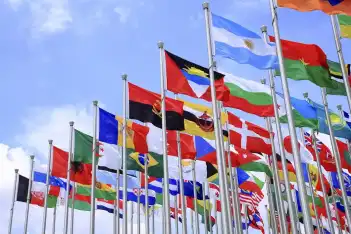Certainly! Michel Foucault, a French philosopher and social theorist, is well-known for his work on the dynamics of power and how it operates in various social structures. His ideas on power are scattered across his works, but some of the key concepts are found in his lectures, interviews, and major writings. One of his influential works is "Discipline and Punish: The Birth of the Prison" and his later lectures on governmentality.
Here are some key aspects of Foucault's theory of power:
Power is Everywhere: Foucault rejects the idea that power is only held by the state or specific institutions. Instead, he argues that power is dispersed throughout society. It operates at multiple levels, in various forms, and can be found in everyday interactions.
For Example :
Imagine a workplace where there is a hierarchy of authority, with managers at the top and employees at various levels. Traditional views might focus on the power dynamics between managers and employees. However, Foucault would suggest that power is not confined to this hierarchy. It exists in the daily interactions between colleagues, in office norms, and in the unwritten rules that govern behavior. Power is dispersed across the entire social fabric of the workplace.
Power is Productive: Foucault challenges the traditional view that power is solely repressive. He introduces the concept of "productive power," suggesting that power not only constrains but also produces knowledge, norms, and identities. Institutions and practices shape individuals and societies.
For example : Consider the education system. It's not just a place where knowledge is transmitted, but it actively shapes the identities and behaviors of students. The curriculum, rules, and disciplinary actions are not only about restricting freedoms but also about producing a certain kind of knowledge and molding individuals into specific social roles. Power, in this context, is productive as it shapes both individuals and the broader society.
Biopower and Biopolitics: Foucault explores how modern societies govern populations through what he calls "biopower" and "biopolitics." Biopower involves the regulation of populations through mechanisms like healthcare, education, and social policies. Biopolitics refers to the intersection of political power and the management of life at the population level.
For Example : Think about public health campaigns that aim to regulate and improve the health of a population. Governments may implement policies related to vaccinations, disease prevention, and healthcare. Here, biopower is at play as the state is involved in managing and regulating the health and well-being of the entire population, emphasizing the intersection of political power and the biological aspects of life.
Disciplinary Power: In "Discipline and Punish," Foucault discusses how disciplinary power operates through institutions like prisons, schools, and hospitals. He describes the development of disciplinary techniques that regulate individuals and create docile bodies.
For Example : In a prison setting, disciplinary power is evident. The architecture of the prison, the routines imposed on inmates, and the constant surveillance create a system that regulates behavior. The panopticon, a prison design where inmates can be observed at all times without knowing if they are being watched, illustrates how disciplinary power operates by inducing self-regulation in the prisoners.
Governmentality: Foucault later developed the concept of "governmentality," which explores the various ways in which societies are organized and governed. It involves not only state institutions but also non-state actors and mechanisms of self-governance.
For Example : Consider the various ways in which a government manages its population. This includes not only laws and regulations but also the influence of non-state actors like media, corporations, and educational institutions. Governmentality encompasses the broader network of power relations that govern a society.
Panopticon: Foucault uses the idea of the panopticon, a hypothetical prison design with a central observation tower, as a metaphor for modern disciplinary power. The constant possibility of being observed induces self-regulation and conformity.
For Example : Think about the modern surveillance society. In the age of social media and constant online presence, individuals may feel like they are being observed or judged at all times. This sense of being watched, even if not in a physical panopticon, can influence behavior and self-regulation.
Resistance and Subversion: Foucault does not see power as purely oppressive. He acknowledges the existence of resistance and subversion. Individuals and groups can resist power and create alternative discourses and practices.
For example : In any social setting, there are individuals or groups challenging the established norms and power structures. For instance, social movements advocating for civil rights, gender equality, or environmental justice are forms of resistance. These movements challenge existing power relations and seek to create alternative discourses and practices.
It's important to note that Foucault's work is complex and can be open to different interpretations. His ideas have been influential in various fields, including sociology, political science, cultural studies, and philosophy.
Foucault's theory encourages us to look beyond formal structures of power and recognize the subtler ways in which power operates in our everyday lives and institutions. It invites critical reflection on how power shapes our identities, norms, and social structures.







